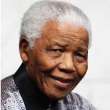
After a critical review of the state of the nation, the Sultan of Sokoto and president-general of the Jama’atu Nasril Islam (JNI), Alhaji Sa’ad Abubakar III, yesterday said that so many things are not working in the country because the leaders refuse to allow them to work.
The Sultan who spoke at a national conference on peace, unity and security organised by JNI in Kaduna said, “So many things have gone wrong in this country and things are still going wrong.
“As leaders, we are committed in ensuring justice in whatever we do; we are committed in ensuring that those leaders whom Allah placed on us to lead us do what is right. And we must continue to tell them when they do wrong. No leader is ever right.”
The Sultan added that “the reason of our coming together today is to unite our senior brothers and sisters in Islam, especially the Ulama”.
“If there is unity amongst Muslims there will be peace; if there is peace amongst Muslims of this great country of ours, there will be total security in Nigeria. If there is security, definitely there will be development.
“What we have been experiencing in the northern part of the country -- in particular the unfortunate incident which has been forced on us for so many reasons.
“I believe it’s high time that all of us come together and discuss those things that have been festering in our lives as Muslims in this country,” he said.
He noted that “our coming together and sitting together under one roof shows that we are ready to be united. Sitting down to discuss the main issue facing us is a plus for all of us.”
To the Muslim community, the Sultan said: “We are very aware of the challenges facing us as Muslims and i believe with constant prayers we shall overcome the challenges and move to the greater heights.
“We must put aside personal interest to put Islam above all. We will not allow anybody to stop us from being Muslim, because that is what we choose to be.
“We will not allow anybody to turn our lives upside down. We will not allow anybody to ascribe any form of violence to Islam. We must come together and solve our problem together.
“I remember in this very hall when President Goodluck Jonathan was campaigning; it was in this very hall we listened to what he wanted to see us for. And we the Muslim leaders gave him our agenda -- what we wanted from him.
“But whether he has done what we told him or not is a different thing altogether. We have not sat down to articulate it because of the so many insecurity problems that came up.”
Insurgency: NHRC cautions FG on rules of engagement
The National Human Rights Commission (NHRC) has insisted that the President Goodluck Jonathan-led government’s military campaign aimed at checking a Boko Haram-led insurgency in part of Nigeria’s north must be guided by strict adherence to fair Rules of Engagements (RoEs).
This is contained in an interim assessment and report by the NHRC on the April shootout between a Multi-National Joint Task Force (MNJTF) and Boko Haram extremists in the remote town of Baga, Borno State, near the border with Chad and security situation in the entire North-East.
According to the NHRC, the Baga incident illustrates concerns about the proportionality of the use of force in internal security operations that must be addressed by the federal government, its security forces and institutions.
NHRC in its eight-page interim recommendation said the federal government should as a policy commit itself to the principle of legality in the conduct of the operations in the north-east. In keeping with this policy, “RoEs should be adopted, published and regularly reviewed. RoEs should be calibrated to the conditions confronted by the internal security deployment,” the commission stated in its report.
On reported detention, interment and enforced disappearances in the insurgency ravaged states, NHRC insisted that the prolonged detention of persons in un-gazetted places of detention and without access to the legal process or other safeguards under judicial supervision is not allowed under Nigeria’s constitution.
“Government should urgently address detention practice to bring it in compliance with the Constitution and other applicable standards binding on Nigeria, including, in particular, the International Convention for the Protection of All Persons from Enforced Disappearance. Detainees should be properly documented and enumerated and government should regularly publish information on the numbers of persons detained in connection with the situation in north-east Nigeria. The rules or regulations applicable to detention should be published and counsel and medical professionals afforded access to detainees.
On humanitarian access, NHRC called on the federal government and the security forces to encourage and guarantee access for humanitarian deliveries and workers to the States and communities in north-east Nigeria and a safe corridor for humanitarian deliveries. The protection and security of humanitarian workers NHRC recommended should equally be safeguarded and guaranteed particularly for maternal care and health and to the healthcare needs of children.
NHRC also recommended that the Armed Forces regularly undertake rotation and renewal of the troops deployed in the north-east. “Troop rotation facilitates rest and recuperation on the part of active service personnel, helping them to minimise risks of Post Traumatic Stress Disorder (PTSD).” The report stated.
Why corruption persists in Nigeria - Ribadu
The former chairman of the Economic and Financial Crimes Commission (EFCC), Mallam Nuhu Ribadu, has offered reasons as to why corruption persists in the Nigerian polity: impunity and lack of political will to fight the menace.
Ribadu spoke yesterday in Lagos at a pre-Ramadan lecture organised by the University of Lagos Muslim Alumni with the theme, “Corruption and Justice in Nigeria”.
Ribadu, the presidential candidate of the Action Congress of Nigeria (ACN) in the 2011 election, added that only a corrupt-free president who is also ready to subject his cronies to processes of the law, in case of infringement, can lead the crusade against corruption.
Other hitches to successful anti-corruption war identified by the ex-EFCC chairman include interference in the work of law enforcement agencies, and certain loopholes in the justice administration which make corruption cases difficult to prosecute.
The corruption profile of Nigeria, according to him, is rising to a worrisome level as many convicts go largely unpunished or given a mild sentence for monumental theft. He also described recent pardon of some highly placed individuals convicted of corruption by the federal government as rubbishing the war against corruption.
“So many corrupt people get away with their acts, largely because of their relationships with heads of institutions that ought to counter or expose their abuse of office. Some convicts are being granted state pardon, thereby rubbishing the whole effort at corruption. These practices have turned corruption into a sort of culturally or ethically accepted trend,” he said.
According to Ribadu, it takes a great deal of goodwill and readiness of the political leadership to launch an effective anti-corruption campaign. He cited the example of the infamous Malabu Oil deal and the report of the presidential task force on oil revenue as being jeopardized by executive silence.
For a new leaf in the anti-graft crusade, Ribadu advocated electing credible and incorruptible leaders who would set the tune for the crusade as well as strengthening of anti-corruption agencies for them to be truly independent.
Ribadu, however, dispelled the clamour for special courts for corruption, arguing that what was needed is review of the procedural laws and sincere application of same by any court of competent jurisdiction.
The former EFCC chairman also charged the legislative arm of government to be alert to its oversight responsibilities which, he said, is a primary mechanism of tackling corruption.
Committee ought not to be called amnesty for Boko Haram
- Sultan
As the amnesty committee constituted by the federal government to meet with members of the Boko Haram sect with a view to brokering peace is in place, the Sultan of Sokoto, Alhaji Mohammed Abubakar Sa’ad III, has said that the committee was not supposed to be called “amnesty for Boko Haram”.
Rather, the Sultan said, the committee is for reconciliation of various insurgent groups including the Boko Haram operating in the northern part of the country.
Speaking at the weekend while commissioning the Jumat mosque of BAZE University, Abuja, the leader of Muslims in the country said the word amnesty was not appropriate for the present context in which the nation finds itself and which the committee works.
The Sultan also inaugurated a mosque management committee under the chairmanship of Professor Nur Alkali who is also part of the federal government amnesty committee for Boko Haram.
He blamed the insecurity challenges facing the country on inadequate education for the youths urging parents to give proper education to their wards. The greatest challenge facing the muslim community in Nigeria is lack of proper education, he noted.
The Sultan, who also urged Muslims across the country and the world to close ranks and act as a united front, said that Islam abhors killings even as he called on Islamic teachers to preach the true message of Islam all the time.
He said: “ We want to call upon our Muslim brothers and sisters to take cognisance of the earlier comment of the former FCT minister on the challenges facing Islam and Muslims all over the world, not only Nigeria. It is for all of us to close ranks as almighty Allah has ordered us to do as Muslims -- be united and act as one body and... In Sha Allah we will overcome all the challenges facing us.
“We want to thank the proprietors of the university for putting up this institution together and I want to call on all of us to continue to contribute in the best way possible we can to educate our people.
“For the greatest problem facing the Muslim Ummah in Nigeria today is lack of education. If there had been adequate education of our youths -- either Western education or Islamic education -- the insecurity problem we are facing wouldn’t have arisen. People wouldn’t have picked up arms and grenades and kill in the name of Islam, for Islam abhors such behaviour. We must always educate our children with true teachings of Islam. We advise our Ulamas to always teach us and preach the true message of Islam. Put aside your personal grievances, put aside your greed for worldly things. These are the problems among our Ulamas and I have just told them in Sokoto when the Council of Ulamas met.
“We are having a meeting with the committee on Sunday morning in Kaduna In Sha Allah to find ways forward to reconciliation. I don’t want use the word amnesty for Boko Haram; it’s not for Boko Haram alone, it’s reconciliation of all security challenges being brought about by all various insurgents whether Boko Haram or Boko what --- I want to correct this. It is the reconciliation of various insurgents that have been operating in the northern parts of our country. “
Why FG declared emergency rule in Adamawa - Minister
Also speaking at the conference, the chairman of the Presidential Committee on Dialogue and Peaceful Resolution of Security Challenges in the North, Alhaji Tanimu Turaki (SAN), who led other members of the committee, explained why President Goodluck Jonathan declared State of Emergency in Adamawa State.
The committee chairman also begged the leadership of JNI to plead with the notorious members of the Boko Haram to accept the amnesty which is being offered by the federal government and come out for dialogue.
When asked if the committee had had any contact with the Boko Haram members, the presidential committee chairman said, “No, but we have met with some of the sect members and we are yet to meet with the leadership of the Boko Haram. ”
Explaining further on the emergency rule in Adamawa State, the Turaki said the link between some of these insurgence groups to getting arms and ammunition from outside Nigeria is usually through Adamawa State.
“Most of the borders of Nigeria with our neighbours are so porous. And so a lot of them now use that opportunity to be able to import arms into the country. So the extension of the emergency into Adamawa State has been able to drastically curtail or block the opportunities of having access to bringing in arms and ammunition into Nigeria and further escalate the crisis.
“This is the reason why we are pleading with the leadership of JNI to call on Boko Haram members to please give peace a chance; let them allow for dialogue and let them answer our call for a peaceful resolution of this matter in the overall interest of everybody,” he stated.
He said, “We have tried as a committee to talk to some of the Boko Haram members that are in detention as well as some of them that could serve as link of our engagement to some of them that matter. But we are yet to meet with the notorious members of the group.”
Muslim scholars to help promote inter-faith harmony - Yero
Governor Mukhtar Ramalan Yero who spoke at the conference said Nigeria as a nation is grappling with the challenge of sentiment and acrimony which threatens the very existence of the nation as a corporate entity.
“Over the years, we have witnessed several ethno-religious crises in many parts of the country, leading to loss of lives and property and also slowing down our developmental strides as a people. This ugly trend has to stop and quickly,” he said.
The Kaduna governor said Muslim scholars have a great role to play if this country must reverse the unjustifiable animosity between Muslims and adherents of other faiths in the country.
To bring lasting peace and unity to Nigeria, Yero said, Muslim scholars must commit themselves to preaching peace to the people
“As people of immense influence on the psyche of their followers, Muslim scholars must desist from hate preaching and provide clear and unambiguous guidance to the Ummah.”
Poverty cause of Nigeria’s problems - Ex-envoy
Delivering his lecture on “The Role of Muslim Scholars in Fostering Unity, Peace and Security in Nigeria”, a former Nigerian ambassador to Saudi Arabia, Professor, Shehu Galadanci, said the current security challenges in some parts of the country are caused by poverty, injustice or failure of the political class. “It is obvious that our ulama (Ilsamic preachers) can be squarely blamed either for their failure to prevent such factors in the first place or their inability to directly intervene and address the problems when they appeared,” he said. “It is easy to see that, from whatever perspective one analyses the security challenges that we are currently facing as a nation, the problems are partly if not largely as a result of the failures of our ulama. And their solutions are likely to be found when they rightfully discharge their responsibilities.”
Courtesy :leadership.ng
 Football
Football According to a former NFA chairman, Mr Kojo Williams, "I just think that we were technically bereft. I said it before that we needed sound technical guys to come in and work with our team, because if we left the job to the present coaches, then we would get more hammering in the future and that was what happened in Brazil.
According to a former NFA chairman, Mr Kojo Williams, "I just think that we were technically bereft. I said it before that we needed sound technical guys to come in and work with our team, because if we left the job to the present coaches, then we would get more hammering in the future and that was what happened in Brazil.
.jpg)












